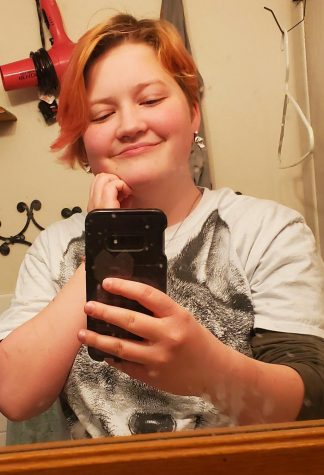Why Are We So Interested In True Crime?
May 13, 2021
Morbid curiosity is nothing new to people. There has been this fascination with anything gruesome, dark, and horrifying for as long as the 18th century, with written horror becoming more popular, with things like Frankenstein and The Strange Case of Dr. Jekyll and Mr. Hyde. With the dawn of the internet, this has only become more and more prevalent.
Sites like YouTube and Reddit foster communities of like-minded people who are all fascinated with past murder cases and unsolved mysteries of every variety.
Besides this, the most basic question that people have for these communities is why? Why do you find it so interesting? Why do you like reading these things?
To start, I am one of these people. I find true crime interesting to no end and it’s easily one of my favorite subjects of the media. For me personally, I like these because I like being scared. I like feeling that unease that comes with an unsolved missing persons case. It’s the same reason I like horror movies: it makes my skin crawl and it lets me worry about things outside of my own life and anxieties.
I am far from the first person to pose this question. It has, especially recently, become a big topic of debate, with many people saying that people who are interested in it are dangerous or, on the other hand, they are simply curious about things like the human psyche and condition.
Most people point to morbid curiosity being the culprit for this interest, and that seems to be true. It’s the same phenomenon of looking at a car crash while driving past it: you feel this pull to know all the gruesome details of what happened.
To get some more local perspective on this, I interviewed Brittany Hovland, social studies and psychology teacher here at Wheat Ridge. She, herself, is incredibly interested in true crime, offering a perspective of both a logical and a personal point of view.
“There have always been people who were fascinated by the horrible things people do,” said Hovland on the topic of the history of this interest. She went on to state some examples, with one being as far back as the late 1800s. A word to put to this idea would be “morbid curiosity,” which ties into what else Hovland said.
“It is natural to question what we don’t understand and to try and find an explanation. I think it is incredibly important that we continue to study the disorders of the mind so that we might treat these people in an effective manner,” Hovland said.
Hovland points to the interesting idea that people may be interested in these types of morbid things because we are trying to help in answering questions. Especially with the advent of the internet, normal people have used their knowledge of murder and disappearance cases in order to try and solve something that hasn’t been yet.
As for the big question of “does this interest make you bad,” Hovland says that that is absolutely not true. In fact, she thinks that these people tend to look at all aspects of the human condition and are trying to gain some freedom born out of a lack of fear.
Overall, curiosity in the occult and morbid topics is a normal aspect of human culture. There are a number of different reasons for this, ultimately it comes down to interest in all aspects of life.

